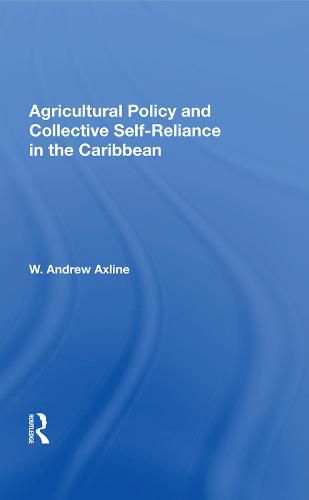Readings Newsletter
Become a Readings Member to make your shopping experience even easier.
Sign in or sign up for free!
You’re not far away from qualifying for FREE standard shipping within Australia
You’ve qualified for FREE standard shipping within Australia
The cart is loading…






Focusing on the process of agricultural policy-making within the Caribbean Community and Common Market (CARICOM), this book provides a context for understanding the evolving theory of regional integration among developing countries. Dr. Axline traces the progress of Caribbean integration from its beginnings in the mid-1960s to its present state of stagnation. Drawing on original documents and extensive interviews in the twelve CARICOM member countries, he describes the move away from a market-oriented laissez-faire approach to agriculture and the shift toward sectoral programming. The role of other regional organizations, such as the Caribbean Development Bank and the Caribbean Agricultural Research and Development Institute, is examined and related to national and regional policies in the agricultural sector. The Caribbean experience, concludes Dr. Axline, suggests that the future direction of regional cooperation among developing countries will likely be toward more intensive integration on a less extensive scale.
$9.00 standard shipping within Australia
FREE standard shipping within Australia for orders over $100.00
Express & International shipping calculated at checkout
Focusing on the process of agricultural policy-making within the Caribbean Community and Common Market (CARICOM), this book provides a context for understanding the evolving theory of regional integration among developing countries. Dr. Axline traces the progress of Caribbean integration from its beginnings in the mid-1960s to its present state of stagnation. Drawing on original documents and extensive interviews in the twelve CARICOM member countries, he describes the move away from a market-oriented laissez-faire approach to agriculture and the shift toward sectoral programming. The role of other regional organizations, such as the Caribbean Development Bank and the Caribbean Agricultural Research and Development Institute, is examined and related to national and regional policies in the agricultural sector. The Caribbean experience, concludes Dr. Axline, suggests that the future direction of regional cooperation among developing countries will likely be toward more intensive integration on a less extensive scale.